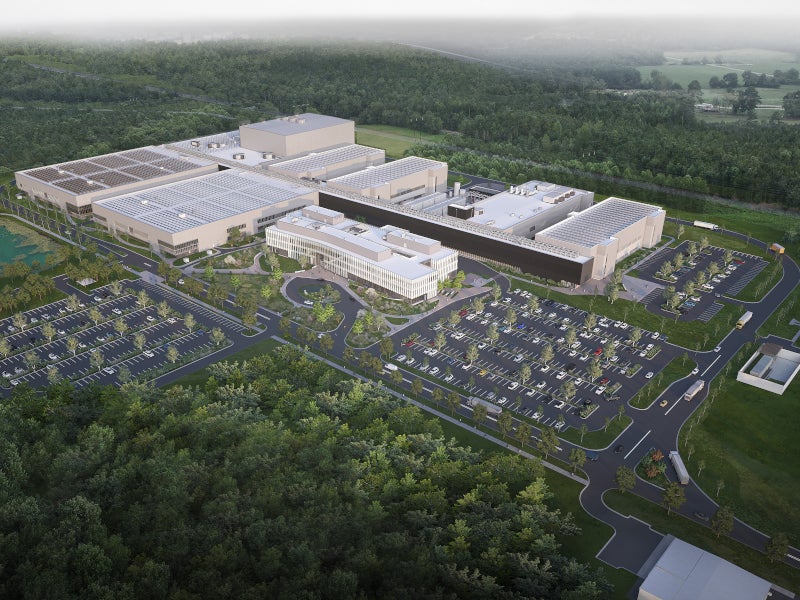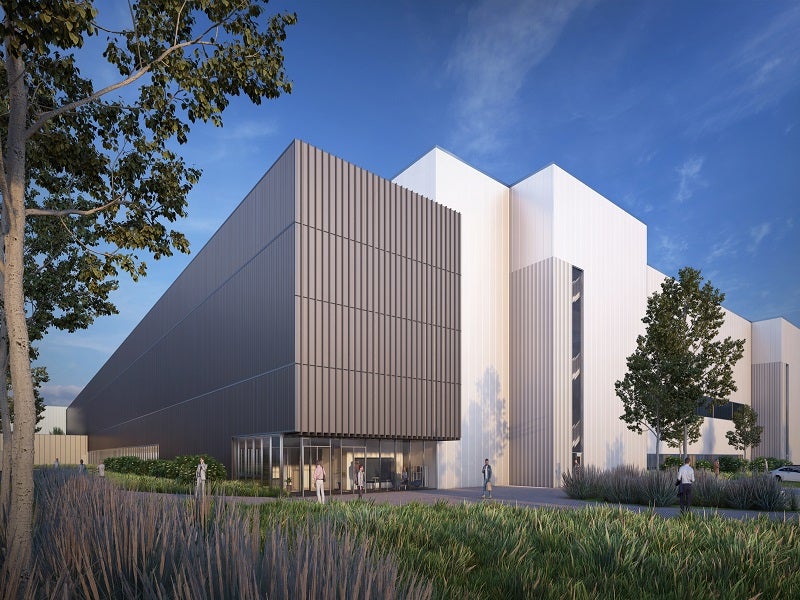Novo Nordisk is developing a new aseptic and finished product manufacturing facility in Clayton, North Carolina, US. It will be the company’s second fill-and-finish facility on the Clayton campus.
Announced in June 2024, the new facility will enhance the company’s capacity to produce existing and future injectable medicines for obesity and other serious chronic diseases.
Novo Nordisk is investing $4.1bn in the new facility. The project is part of Novo Nordisk’s plans to increase its current investments in 2024, aimed at allocating $6.8bn towards production – a significant rise from the previous year’s investment of $3.9bn.
The preliminary clearing and foundational work for the facility has commenced, with construction to be completed progressively between 2027 and 2029. The project is expected to employ 2,000 external contractors during the peak construction phase.
The new facility will create 1,000 jobs, supplementing the 2,500 Novo Nordisk employees already based in the region.
Location
The new facility will be situated within Novo Nordisk’s existing Clayton campus in North Carolina, US, covering 56 acres (22.7 hectares) within the campus. It will double the combined square footage of all three of the company’s existing facilities in North Carolina.
Novo Nordisk aseptic and finished product manufacturing facility details
The new facility will have 1.4 million ft2 (130,064m2) of production space for aseptic manufacturing and finished production processes.
It will include ten or more buildings and multi-building combinations including an automated warehouse, aseptic and finished products buildings, a central utility building and an administrative building.
Designed to integrate sustainability and cutting-edge technology, the site’s layout strategically positions production buildings around a central spine to optimise natural light and minimise visual impact.
The design is complemented by high-visibility landscapes that merge with functional spaces, fostering a connection to the natural environment and enhancing employee well-being.
Sustainability features
The facility will exemplify Novo Nordisk’s “Circular for Zero” strategy aimed at reaching net zero emissions. Every facet of the site, from the overarching design to the selection of materials and the indoor environment, has been planned to align with Novo Nordisk’s stringent environmental goals, with the aspiration of achieving LEED [Leadership in Energy and Environmental Design] Gold certification.
Sustainability initiatives to be incorporated in the facility include an extensive on-site photovoltaic system, the utilisation of off-site renewable energy resources and the sourcing of low-carbon concrete and steel.
A comprehensive embodied carbon footprint analysis will be conducted and strategies for rainwater capture and process water treatment will be incorporated.
Novo Nordisk’s North Carolina operations
Novo Nordisk operates three facilities on the North Carolina campus: an aseptic and finished product manufacturing facility, an active pharmaceutical ingredient (API) facility, and a solid dosage forms facility.
The aseptic and finished product manufacturing facility is responsible for filling and packaging the majority of injectable diabetes and obesity products distributed to millions of patients in North America.
The API facility produces APIs for innovative oral medications for Type 2 diabetes, while the solid dosage forms facility is a large-scale tableting facility for manufacturing oral glucagon-like peptide-1 (GLP-1) treatment for Type 2 diabetes.
Contractors involved
The BE&K Building Group, a design-build and construction management company, was tasked with the detailed preparation of the project, including providing estimates, schedules and procurement strategies. It will directly execute a significant portion of the work as the construction manager and will act as the agency construction manager for the remaining work.
Hanbury, an architecture and design company, is responsible for designing the new facility.
Marketing commentary on Novo Nordisk
Founded in 1923 and headquartered in Denmark, Novo Nordisk is a global healthcare leader. It employs more than 65,000 people across 80 countries and its products are sold in 170 countries.
The company has a global manufacturing network with five manufacturing sites situated in Denmark, the US, France, Brazil and China. These production facilities produce approximately 50% of the world’s insulin and GLP-1 drugs for diabetes and obesity, apart from drugs for rare diseases such as haemophilia and growth disorders.






